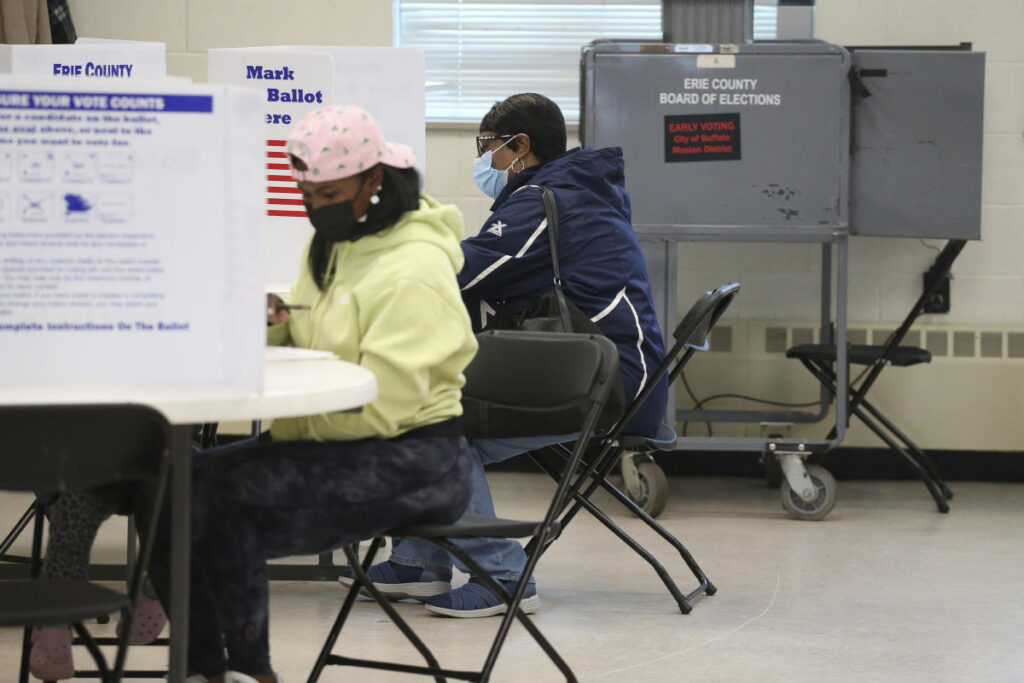A recent ruling by a state judge in New York struck down a law that aimed to shift many town and county elections from odd-numbered years to even-numbered years, aligning them with state and federal races. This decision is considered a victory for the Republican Party, which argued that the legislation was a partisan maneuver led by Democrats intended to gain an electoral advantage. The bill was approved by the Democrat-controlled state Legislature last year, with proponents claiming that moving elections would reduce confusion among voters and enhance turnout. However, Republicans criticized the law for potentially boosting voter participation during presidential election years, which they believe would disproportionately benefit Democratic candidates.
State Supreme Court Justice Gerard Neri ruled against the law, stating it violated the New York State Constitution. He emphasized that the legislation infringes upon the rights of local governments to manage their own electoral processes. Additionally, Justice Neri pointed out that the law did not impact New York City’s elections, which are scheduled in odd-numbered years for certain local positions, including the district attorney. His ruling raised pertinent questions regarding equal protection under federal law, questioning if the differences in electoral confusion experienced by suburban and urban voters were constitutionally valid.
The response from political leaders reflects the polarized views on this issue. Senator James Skoufis, a Democrat and one of the bill’s sponsors, expressed confidence that the ruling would be overturned upon appeal. He described the legal challenge as a misuse of taxpayer resources, arguing that the plaintiffs were engaged in a misguided campaign to maintain lower voter turnout in local elections. Skoufis emphasized that a more impartial group of judges would uphold the constitutionality of the law, suggesting that the intention behind the legislation was to modernize and enhance electoral participation.
Conversely, the Republican Party hailed the ruling as a significant victory for advocates of local election integrity. State Republican Chairman Ed Cox condemned the legislation as a radical change intended to consolidate power within the Democratic Party while minimizing discussions on local issues. Cox argued that placing local elections alongside federal and state contests would drown out important community matters beneath state and federal campaign noise, ultimately leading to a lack of representation for local concerns.
This legal battle highlights the ideological divide over electoral processes and governance in New York State. The Democrats’ push for reform aims to address low voter turnout in local elections, a concern that has gained traction in recent years as more voters express frustration over the perceived inefficiencies of the electoral system. However, the Republicans’ counterargument underscores a fundamental belief in local governance autonomy and the potential risks associated with creating a more centralized electoral calendar that may disadvantage certain segments of the electorate.
As the controversy unfolds, the attorney general’s office is currently reviewing the court’s decision. The implications of this ruling extend beyond the immediate political landscape, raising essential discussions about election laws, voter engagement strategies, and the balance of power between state and local governments. As both parties prepare for future legal battles over the issue, the discourse surrounding this legal challenge will likely persist, reflecting broader national conversations about electoral integrity and citizen participation in democracy.

